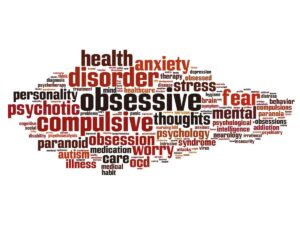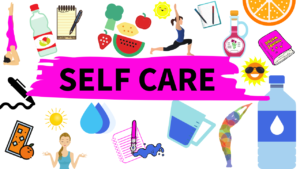If you are living with OCD, you know how challenging it can be. The intrusive thoughts, the compulsive behaviors, and the constant fear of contamination can take over your life. But there is hope. OCD recovery is possible, and with the right treatment plan, you can overcome OCD and get your life back. In this blog post, we will discuss the different treatment options available for OCD recovery, as well as some tips for overcoming OCD on your own.
Contents
What Is OCD?
 OCD is a disorder that is characterized by obsessions, or intrusive thoughts, that lead to compulsions, or repetitive behaviors. These thoughts and behaviors can be so severe that they interfere with your daily life. People with OCD often have fears of contamination, germs, or dirt. They may also have obsessive thoughts about harm coming to themselves or others. As a result of these obsessions, people with OCD may engage in compulsive behaviors such as excessive hand-washing, cleaning, or checking.
OCD is a disorder that is characterized by obsessions, or intrusive thoughts, that lead to compulsions, or repetitive behaviors. These thoughts and behaviors can be so severe that they interfere with your daily life. People with OCD often have fears of contamination, germs, or dirt. They may also have obsessive thoughts about harm coming to themselves or others. As a result of these obsessions, people with OCD may engage in compulsive behaviors such as excessive hand-washing, cleaning, or checking.
OCD can also be characterized by a need for symmetry or order. People with OCD may have compulsions to arrange things in a certain way, or they may be excessively tidy. Other obsessions include fears of losing control, unwanted sexual thoughts, and religious obsessions.
There are two types of OCD: primary and secondary. Primary OCD is when the disorder is the main diagnosis. Secondary OCD is when the disorder is comorbid with another diagnosis, such as anxiety or depression.
The exact cause of OCD is unknown, but it is believed to be caused by a combination of biological and environmental factors. Studies have shown that people with OCD have differences in their brain structure and function compared to people without OCD.
OCD is a treatable disorder, but it can be difficult to overcome on your own. If you are struggling with OCD, it is important to seek professional help.
Recovery From OCD
 OCD recovery is possible. People also tend to think that they will never be able to overcome their OCD and live a normal life. This is not the truth. If you are willing to put in the work, you can get better.
OCD recovery is possible. People also tend to think that they will never be able to overcome their OCD and live a normal life. This is not the truth. If you are willing to put in the work, you can get better.
There are many different methods for treating OCD. The most important thing is to find what works for you. There is no one-size-fits-all solution. You might need to try a few different things before you find something that helps. These may also include:
-Exposure and response prevention
-Medication
-Support groups
You should also avoid any type of self-judgment. Beating yourself up will only make things worse. Be patient with yourself and understand that recovery takes time. Do not give up hope. You can get better.
Different OCD Recovery Methods
There are many different ways that people have recovered from OCD. Some people have recovered through therapy, some through medication, and some through a combination of both. There is no one right way to recover from OCD, as different things work for different people. However, certain methods are generally more effective than others.
Some of these methods are:
Medications
 Medications are one of the most common and effective ways to treat OCD. They can help to reduce the symptoms of OCD, making it easier to manage them. There are many different types of medications that can be used to treat OCD, so it is important to speak to a doctor or psychiatrist about which one would be best for you.
Medications are one of the most common and effective ways to treat OCD. They can help to reduce the symptoms of OCD, making it easier to manage them. There are many different types of medications that can be used to treat OCD, so it is important to speak to a doctor or psychiatrist about which one would be best for you.
Some of these medications are:
Selective serotonin reuptake inhibitors (SSRIs)
Selective serotonin reuptake inhibitors (SSRIs) are the most common type of medication used to treat OCD. They work by increasing the levels of serotonin in the brain, which can help to reduce the symptoms of OCD. This medication can prove to be very effective, but it can also take several weeks or even months to start working.
Serotonin and norepinephrine reuptake inhibitors (SNRIs)
SNRIs work by increasing the levels of serotonin and norepinephrine in the brain. These are two neurotransmitters that play a role in OCD. SNRIs are generally considered to be as effective as SSRIs, but they may have more side effects. Examples of SNRIs include venlafaxine (Effexor) and duloxetine (Cymbalta). It can also be used to treat other mental health disorders, such as anxiety and depression.
Tricyclic antidepressants (TCAs)
TCAs are an older type of antidepressant that is not as commonly used as SSRIs or SNRIs. They work by inhibiting the reuptake of serotonin and norepinephrine, but they also have a few other effects on the brain. Because of this, they tend to have more side effects than SSRIs and SNRIs. Examples of TCAs include imipramine (Tofranil) and amitriptyline (Elavil).
Monoamine oxidase inhibitors (MAOIs)
MAOIs are another older type of antidepressant that is not as commonly used as SSRIs or SNRIs. They work by inhibiting the monoamine oxidase enzyme, which breaks down serotonin, norepinephrine, and dopamine. This can lead to increased levels of these neurotransmitters in the brain. MAOIs are generally considered to be less effective than SSRIs and SNRIs, but they may be an option for people who do not respond to other types of antidepressants. Examples of MAOIs include phenelzine (Nardil) and tranylcypromine (Parnate).
Therapy
 Therapy is an important part of OCD recovery. It can help you understand your thoughts and feelings, and learn new ways to cope with them. Different types of therapy can be helpful for OCD, including cognitive-behavioral therapy (CBT), exposure and response prevention (ERP), and Acceptance and Commitment Therapy (ACT).
Therapy is an important part of OCD recovery. It can help you understand your thoughts and feelings, and learn new ways to cope with them. Different types of therapy can be helpful for OCD, including cognitive-behavioral therapy (CBT), exposure and response prevention (ERP), and Acceptance and Commitment Therapy (ACT).
Your doctor or therapist can help you choose the right type of therapy for you. You may need to try more than one type before you find the one that works best for you.
Cognitive-Behavioral Therapy (CBT)
CBT therapy is a type of therapy that helps you to change the way you think about your OCD. It can help you to understand your thoughts and feelings, and learn new ways of responding to them. CBT is generally considered to be one of the most effective treatments for OCD. Also, CBT works by helping you to challenge and change the thoughts and beliefs that are causing your OCD.
CBT is usually done with a therapist, but there are also self-help CBT books and online programs that can be helpful. There may be also many different types of CBT, so it is important to speak to a therapist about which one would be best for you.
ERP Therapy
ERP therapy is a type of CBT that helps you to face your fears and learn new ways of responding to them. ERP works by gradually exposing you to the things that trigger your OCD while teaching you how to respond differently. For example, if you are afraid of germs, your therapist may help you to slowly come into contact with things that are dirty, such as doorknobs or public restrooms.
You will then learn how to respond differently to these triggers, such as by not washing your hands after coming into contact with them. ERP can be done with a therapist or on your own. It is important to speak to a therapist about ERP before you start, as it can be difficult to do on your own.
Acceptance and Commitment Therapy (ACT)
ACT is a type of therapy that helps you to accept the thoughts and feelings that are causing your OCD. It also helps you to commit to living in a way that is consistent with your values, even if it means facing your fears. ACT works by helping you to increase your psychological flexibility. This means being able to hold multiple thoughts and feelings in mind at the same time and respond in a way that is consistent with your values.
ACT can be done with a therapist or on your own. There are also many self-help ACT books and online programs that can be helpful.
Family Therapy
Family therapy is a type of therapy that can help to improve communication and relationships within your family. It can be helpful for families who are struggling to support a loved one with OCD. Family therapy can also help you to understand how your OCD affects your family, and vice versa. The working of family therapy can vary depending on the family, but it usually involves all members of the family meeting with a therapist together. People may also meet with the therapist individually.
It is important to speak to a therapist about family therapy before you start, as it can be difficult to do on your own.
Group Therapy
Group therapy is a type of therapy that involves meeting with other people who have OCD. It can be helpful to share your experiences with others who understand what you are going through. Group therapy can also provide support and motivation, and help you to learn new coping skills.
There are many different types of group therapy, so it is important to speak to a therapist about which one would be best for you. Group therapy is usually done with a therapist, but there may also be self-help groups that meet without a therapist. It also makes it a great way to save money on therapy.
Dialectical Behavior Therapy (DBT)
Dialectical Behavior Therapy (DBT) is a type of cognitive-behavioral therapy that was originally developed to treat borderline personality disorder. DBT is effective in treating a range of other mental health disorders, including OCD. Also, DBT focuses on helping people change their patterns of thinking and behaving that are causing them distress. DBT therapists use a variety of techniques, including mindfulness, to help people learn how to better cope with their emotions and stressful situations.
DBT is based on the principle of dialectics, which is the idea that two seemingly contradictory things can both be true. For example, when you’re in recovery from OCD, it’s important to accept that your obsessions and compulsions are part of who you are while also working towards changing them. This can be a difficult balance to strike, but that’s where DBT comes in.
Mindfulness-Based Cognitive Therapy (MBCT)
MBCT is a type of therapy that is based on the principles of mindfulness. Mindfulness is a form of meditation that helps you to become more aware of your thoughts and feelings. MBCT can help you to learn how to control your OCD by teaching you how to become more aware of your thoughts and feelings, and how to let them go.
MBCT is usually done in group sessions, but it can also be done individually. If you are interested in learning more about MBCT, you can talk to your doctor or therapist, or look for an MBCT group in your area. There may be many different types of therapy that can help you to recover from OCD, but MBCT is one of the most effective.
Support Groups

Support groups are a great way to meet other people who are going through the same thing as you. It can be helpful to talk to others who understand what you’re going through and can offer advice and support. There are many different types of OCD support groups, so it’s important to find one that’s right for you. This OCD recovery method is also helpful because it allows you to share your experiences and learn from others.
There are many benefits of attending an OCD support group, including:
-Feeling less alone
-Learning from others’ experiences
-Sharing your own experiences
-Gaining support and advice
-Improving your mental health
If you’re interested in attending an OCD support group, there are many resources available online. You can also speak to your doctor or therapist about finding a group in your area.
Self-Care Activities For OCD Recovery
 Self-Care is an important part of any mental health recovery journey and this is especially true for OCD. Taking care of yourself mentally and physically can help lessen your symptoms and make you feel better overall. There are many different self-care activities that you can do, so it’s important to find ones that work for you. Some self-care ideas for people with OCD include:
Self-Care is an important part of any mental health recovery journey and this is especially true for OCD. Taking care of yourself mentally and physically can help lessen your symptoms and make you feel better overall. There are many different self-care activities that you can do, so it’s important to find ones that work for you. Some self-care ideas for people with OCD include:
Exercise
Exercises are one of the most important things you can do for your mental and physical health. Exercise releases endorphins, which have mood-boosting effects. It also helps to reduce stress and anxiety levels. If you’re not sure where to start, there are many different exercises you can try, such as yoga, walking, running, or lifting weights.
Eating a Healthy Diet
What you eat has a big impact on your mental health. Eating a healthy diet can help improve your mood and energy levels. Try to make sure that you’re eating plenty of fruits, vegetables, whole grains, and lean protein. Avoid processed foods and sugary drinks. Sometimes many foods can trigger OCD symptoms, so it’s important to be aware of your triggers and avoid them if possible.
Spending Time Outdoors
Spending time outdoors in nature can have a calming effect on the mind. It can also help to boost your mood and improve your sleep quality. If you can, try to spend at least 30 minutes outside every day. This can be anything from going for a walk in the park to sitting in your backyard. These outdoor activities can also help one person forget about their obsessions for a while.
Getting Enough Sleep
Sleep is essential for mental health. Not getting enough sleep can worsen OCD symptoms and make you feel more stressed and anxious. Aim to get at least eight hours of sleep every night. If you have trouble sleeping, there are many different things you can try, such as reading before bed or taking a warm bath.
Meditation and Relaxation Techniques
Many different meditations and relaxation techniques can help reduce stress levels. Some of these include deep breathing exercises, progressive muscle relaxation, and guided imagery. These activities can help to calm the mind and body. Many apps and websites offer meditation and relaxation programs. Some of these yoga and relaxation techniques are very helpful for people with OCD.
Some of these yoga poses that can help are:
-Warrior Pose
-Tree Pose
-Camel Pose
-Scale Pose
Doing Something In Nature
There are many different activities that you can do in nature, such as hiking, swimming, or bird watching. Doing something in nature can help to reduce stress and anxiety levels. It can also be a great way to get some exercise. If you live near a forest, beach, or park, try to spend some time there every week. It can also make a big difference in your mental health.
Making Time for Hobbies and Interests
It’s important to make time for hobbies and interests outside of work or school. Doing things that you enjoy can help to reduce stress levels and improve your mood. It can also take your mind off of your obsessions and worries. Some hobby ideas include painting, playing an instrument, gardening, or photography. Find something that you’re passionate about and make time for it every week.
Getting Support From Friends and Family
Friends and family can be a great source of support during OCD recovery. They can offer practical help, such as watching your children while you go to therapy appointments. They can also provide emotional support when you’re feeling overwhelmed. If you don’t have a lot of support from friends and family, there are many different OCD support groups available.
Spending Time With Animals
Spending time with animals can have a calming effect on the mind. It can also help to reduce stress and anxiety levels. If you have the opportunity, try to spend some time with animals every week. This could be anything from going for a walk with your dog to volunteering at a local animal shelter.
Making Lifestyle Changes
Making lifestyle changes is an important part of OCD recovery. These changes can help to improve your mood and energy levels. Try to make sure that you’re eating plenty of fruits, vegetables, whole grains, and lean protein. Avoid processed foods and sugary drinks. Sometimes many foods can trigger OCD symptoms so it’s important to be aware of these.
These are some of the tips to help you in your OCD recovery process. It also includes many different things that you can do to reduce stress and anxiety levels. If you’re feeling overwhelmed, try to take things one step at a time.
Tips To Keep In Mind While Going Through OCD Recovery

There are many tips to keep in mind while going through OCD recovery, but some are more important than others. Here are four tips to keep in mind that will help you on your journey to recovering from OCD:
Be Patient With Yourself
Recovery from OCD is not a quick or easy process. It takes time and effort to overcome the intrusive thoughts and compulsions that characterize the disorder. Be patient with yourself and trust that you can make progress. There are also setbacks involved in recovery, so don’t be discouraged if you have a bad day or two. Just keep moving forward.
Find a Supportive Community
One of the most helpful things you can do for your OCD recovery is to find a supportive community. There are many online and in-person support groups available, and they can offer valuable information and insight. Connecting with others who understand what you’re going through can be incredibly helpful and provide much-needed support.
Challenge Your Beliefs About OCD
One of the biggest obstacles to recovery is the belief that OCD is uncontrollable and untreatable. Challenge these beliefs by educating yourself about the disorder and seeking professional help. Remember that you can manage your OCD symptoms and live a full, rich life.
Practice Mindfulness and Acceptance
Mindfulness and acceptance are two key components of OCD recovery. Learning to be present at the moment and accepting your thoughts and feelings can help you let go of obsessions and compulsions. Practice mindfulness through meditation, yoga, or simply paying attention to your breath. The more you practice, the easier it will become.
Be Gentle With Yourself
One of the best things that you can do is cut yourself some slack. Yes, you will have to work hard on your recovery, but that doesn’t mean that you can’t also give yourself some grace. Be gentle with yourself throughout the process and know that you are doing the best that you can.
Be Consistent
Consistency is also key when going through OCD recovery. It is important to be consistent with your thoughts, emotions, and actions to see results. This means that you should not allow yourself to have any negative thoughts about your disorder or yourself. You should also be consistent with the treatment plan that you and your therapist develop. Doing so will help you make progress in your recovery.
Have Faith
Last but not least, it is important to have faith in yourself and the process of OCD recovery. Believe that you can overcome this disorder and live a happy, healthy life. Trust that the steps you are taking will lead you to success. Remember that there is no shame in seeking help for OCD. Having faith will give you the strength to keep going when things get tough.
These are just a few tips to keep in mind while you are going through OCD recovery. Remember that every journey is different, so trust your instincts and do what feels right for you.
Conclusion
OCD is a serious mental illness that can take over your life if you let it. But there is hope—you can recover from OCD with the right treatment. If you or someone you love is struggling with OCD, don’t hesitate to reach out for help. There are many resources available to support you on your journey to recovery. Sometimes OCD can also be comorbid with other mental illnesses like depression or anxiety. If you think you might have OCD, talk to your doctor about getting a referral to a mental health professional for an evaluation. The sooner you get help, the better—with treatment, you can learn how to manage your OCD and live a full and happy life.
If you’re struggling with OCD, know that you’re not alone—millions of people around the world are affected by this disorder. But there is hope for recovery. With the right treatment, you can learn to manage your OCD and lead a fulfilling life. If you think you might have OCD, reach out for help from a mental health professional. Your mental health — Your psychological, emotional, and social well-being — has an impact on every aspect of your life.
Hope this article was of help to you! If you are suffering from OCD, you may seek help from Therapy Mantra. We have a team of highly trained and experienced therapists who can provide you with the tools and skills necessary for overcoming OCD. Contact us today to schedule an online therapy or download our free OCD treatment app on Android or iOS for more information.


